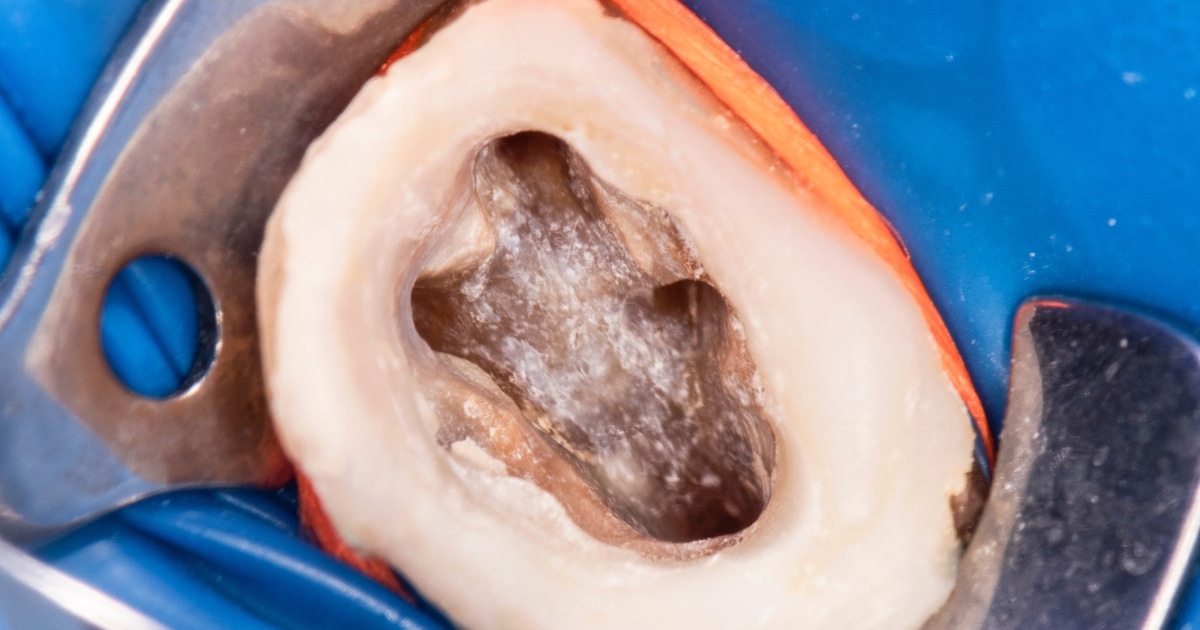Published on January 22, 2025

The holiday season brings joy, celebration, and delicious treats. From cookies and candy canes to pies and festive drinks, indulgence is part of the tradition. However, these sugary and acidic delights can take a toll on your dental health. Excessive consumption of sweets can lead to cavities, enamel erosion, and even severe dental problems that might require professional intervention.
Read this blog to understand the risks and signs of dental damage and ways to enjoy holiday treats while protecting your teeth.
How Holiday Treats Affect Your Teeth?
Sugar and Tooth Decay
Sugar is one of the biggest culprits behind tooth decay. When you eat sugary treats, the bacteria in your mouth feed on the sugar and produce acids that attack your enamel. Over time, you can experience cavities, causing pain and discomfort.
Acidic Foods
Many holiday treats, including citrus fruits, sodas, and certain alcoholic beverages, contain high levels of acidity. Acidic foods and drinks erode enamel, weakening your teeth and making them more susceptible to decay and sensitivity.
Sticky & Hard Candies
Caramel, toffee, and other sticky candies cling to your teeth, creating a breeding ground for bacteria. You can remove their deposits with regular brushing and flossing. You can also break your tooth while biting on hard candies.
What Are The Signs of Dental Damage During the Holidays/
Enjoying holiday treats is fine in moderation, but you must recognize the signs of dental damage. If you experience any of the following symptoms, you may need to see a dentist for root canals in Northside Richmond:
- If you experience pain while consuming hot cocoa or ice-cold beverages, it may indicate enamel erosion or an underlying cavity.
- Persistent pain, even when not eating, can signal deep decay or infection.
- Inflammation around a tooth may indicate an infection that requires professional treatment.
- Cracks can allow bacteria to enter deeper layers of your tooth, while dark spots may signal decay.
When a Root Canal Becomes Necessary?
A root canal can remove infected or damaged pulp from inside your tooth. The pulp contains your nerves and blood vessels that, when inflamed or infected, cause significant pain. During this procedure, the dentist will clean out the infected tissue, disinfect the area, and seal the tooth to prevent further damage.
If left untreated, cavities or cracked teeth can allow bacteria to reach the tooth’s pulp, causing infection and severe pain. A root canal usually becomes necessary when:
- A cavity reaches deep into the tooth, causing nerve damage.
- An infection spreads to the root of the tooth.
- A cracked or broken tooth exposes the inner layers to bacteria.
- Swelling or abscess formation occurs around the affected tooth.
Early intervention can help you prevent the need for this procedure. Routine dental checkups allow dentists to catch cavities before they worsen. If you notice persistent pain, sensitivity, or swelling, seek dental care immediately.
How To Prevent Holiday Treat-Related Dental Issues?
The key to protecting your teeth while enjoying holiday treats is moderation. Try to limit your consumption of sugary and acidic foods. If you do indulge, have sweets with meals rather than as standalone snacks.
Good oral hygiene can mitigate the effects of holiday treats. Brush your teeth at least twice a day with fluoride toothpaste. Floss daily or use water flossers to remove food particles and plaque between teeth. Rinse with water or mouthwash after consuming sugary or acidic foods.
You don’t have to avoid treats altogether; just opt for healthier alternatives. Dark chocolate has less sugar, and fresh fruits like apples contain natural sweetness. Yogurt or dairy-based treats help strengthen enamel with calcium and phosphorus.
When To Seek Professional Help?
If you notice any signs of dental damage or discomfort, don’t wait until after the holidays to see the dentist. Early intervention can protect you from serious issues. Schedule a checkup before the holiday season to ensure your teeth are in good shape.
Regular dental visits and professional cleanings can remove plaque and tartar buildup that brushing alone cannot eliminate. The dentist can also apply fluoride treatments to strengthen your enamel.
Scared of necessary treatment, like root canals and tooth extraction? Modern techniques and anesthesia ensure that the procedure is comfortable and effective. In most cases, this can save your tooth and relieve pain without requiring extraction.
Holiday treats are a delightful part of the season, but excessive consumption can lead to dental issues. Being mindful of sugar intake, practicing good oral hygiene, and recognizing the signs of dental damage can help protect your teeth. If you experience persistent pain or discomfort, don’t hesitate to seek professional help.
Ready to take proactive steps to maintain your oral health this holiday season? Schedule a dental checkup today!
